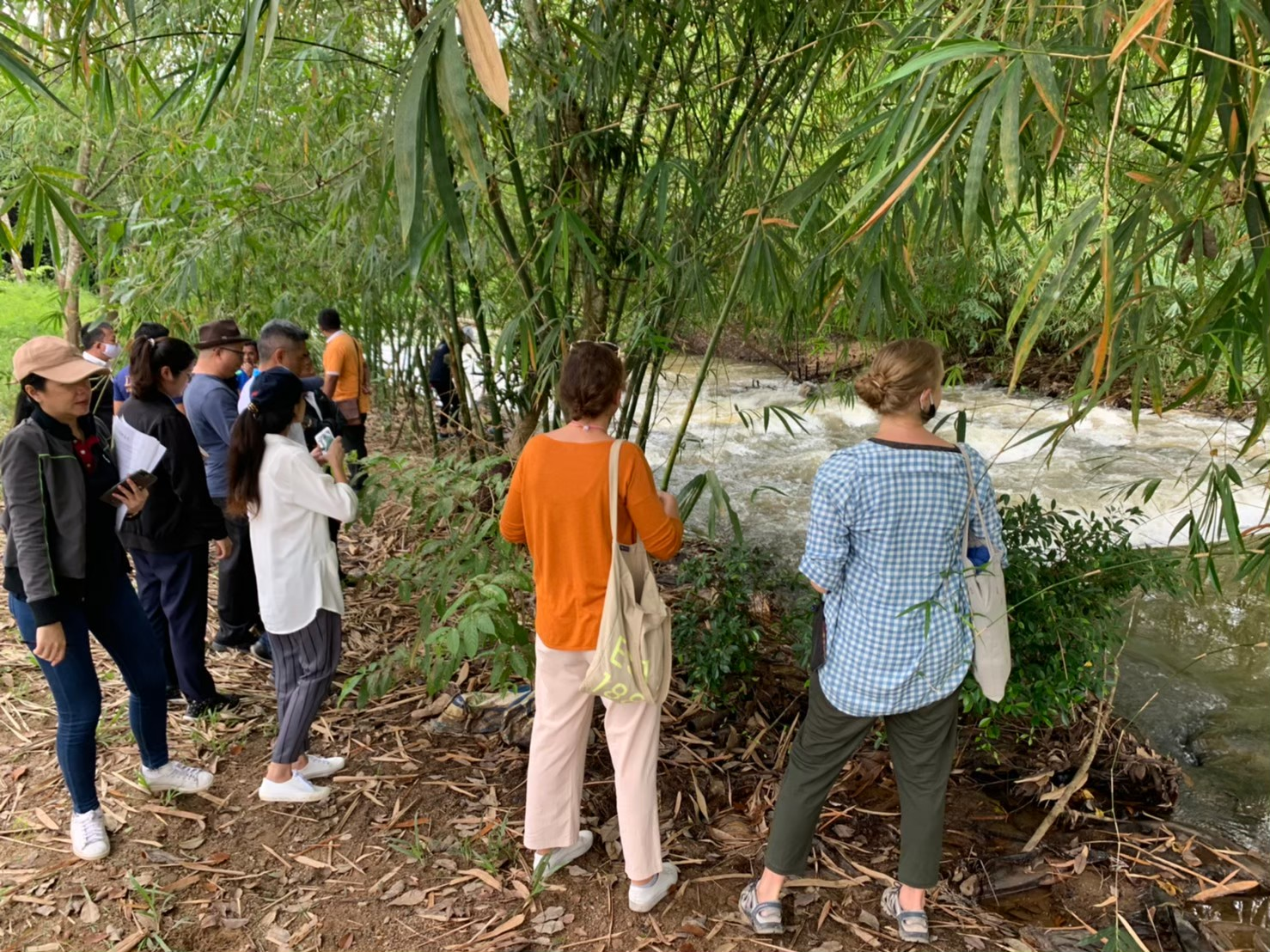

To foster multi-level and cross-sectoral collaborations and create ownership in river basin management, an inclusive and multi-stakeholder approach was fostered to effectively address water-related climate risks on the ground. This includes working closely with public agencies across sectors at both national and sub-national levels, experts, and local water users.
These relevant agencies include, for example, the Office of National Water Resources (ONWR), the Royal Irrigation Department (RID), Department of Water Resources (DWR), Department of Public Works and Town & Country Planning (DPT), and Department of Disaster Prevention and Mitigation (DDPM).
The Capacity Development Programme is a good opportunity and platform for government officers, water users, and local communities to contribute to the development of climate-sensitive water management at the river basin scale. With this training course, participants are able to understand and apply relevant tools for climate-resilient and sustainable water resources management that respond to the needs of local people in the context of climate change.
In addition, there is ongoing cooperation with universities and international experts that feeds up-to-date research and international best practices into the work on EbA in Thailand.
- The Water Resources Act calls for closer cooperation among stakeholders, emphasizes participatory approaches and defines a stronger role for RBCs.
- Community leaders are open for different approaches to mitigate flood and drought risks. Integrating local knowledge into the planning process is an important factor for identifying suitable measures in a local context and fostering community ownership.
- Communities could favor small-scale green solutions in line with Thailand’s Sufficiency Economy Philosophy that uses local resources and know-how.
As the implementation focuses on river basin management through the engagement with River Basin Committees which comprise representatives from different interest groups (civil society, academia, government), it enables the introduction of EbA to the water sector and supports the acceptance and ownership of the approach.